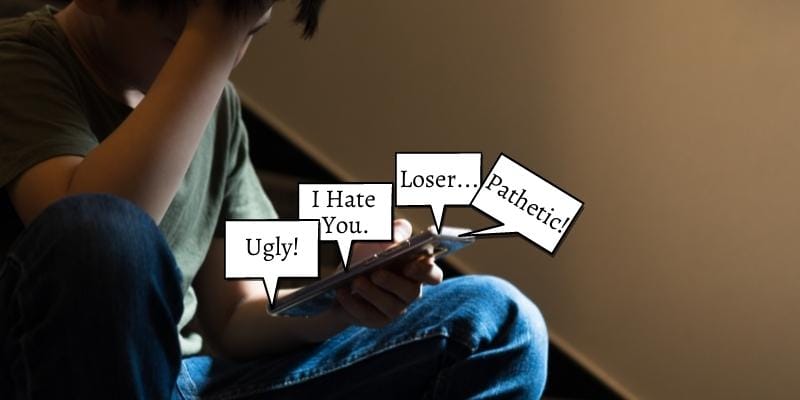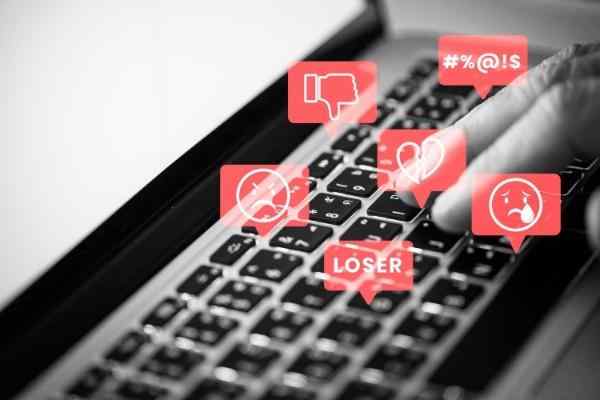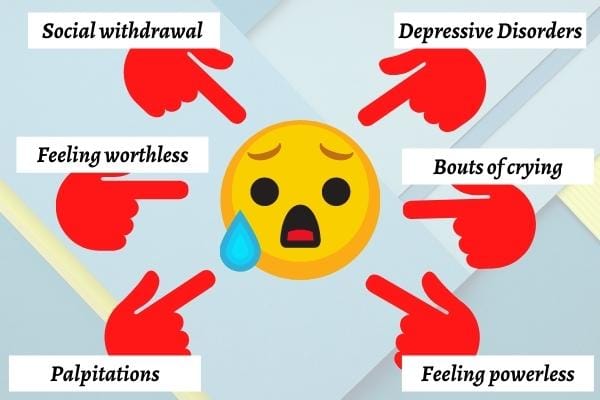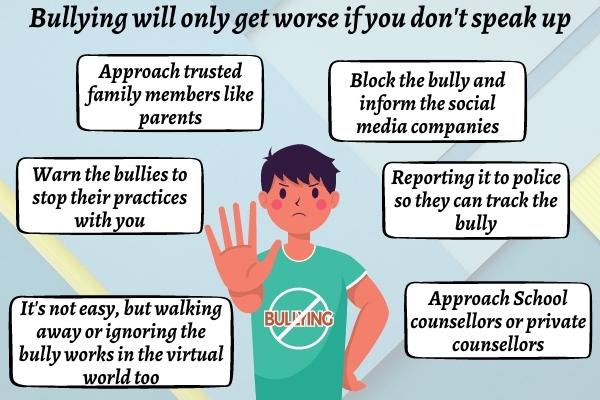“We were surprised at how profoundly bullying affects a person’s long-term functioning,” a press release from Duke Medicine, lead author William E. Copeland, PhD, assistant clinical professor at Duke University in the Department of Psychiatry and Behavioral Sciences.
Social technologies are changing our everyday lives as they allow us to extend our network of relationships to a world that can be reached with a click of a mouse or swipe of a screen 24 hours a day, seven days a week. These advancements are profoundly transforming our lives. But, unfortunately, with these advancements, cyberbullying has also become very prominent.
Are You Being Bullied Online?
Cyberbullying is a form of bullying that occurs through the use of digital technologies such as the internet, social media, and messaging apps. It involves using electronic communication to harass, intimidate, or belittle someone, often repeatedly and with the intention of causing harm. Cyberbullying is also known as “Internet aggression,” “Internet bullying”, or “digital harassment”. Individuals use computers or other information technology (IT) devices, such as cell phones or personal digital assistants, to:
- Harass or upset with
- Rude texts
- Unpleasant tweets and posts
- Relentlessly following on social media
- Intimidate or mean comments about
- sexual orientation
- religion
- race
- gender
- physical appearances
- Threaten, blackmail and embarrass with the intention to hurt by posting
- Personal photographs
- Personal information
- Personal videos
- Spreading lies
- by impersonating you and sending mean messages on your behalf.
- Cause harm to those they target.
Even if the person or group has been told to take down messages, photos, videos etc., and they do not do so, that will also come under cyberbullying.
The anonymous or hard-to-trace nature of online bullying is particularly damaging and upsetting. Chances are, you are nonstop tormented with the thoughts of how many people would have seen the posts or messages. As well as being hard to control, the victim has no idea how many people (or hundreds of people) have seen their posts or messages.
If you notice any of the above signs and feel overwhelmed with the effects mentioned below, chances are you are a victim of cyberbullying.
What Are the Effects of Cyberbullying?
Cyberbullying has a profound effect not only on victims but also on their families and even the people who are witness to the acts of bullying. Cyberbullying can have long-lasting impacts similar to bullying in school or at home. It is researched that bullying’s psychological effect can last well into adulthood. I have clients in their late 30s, 40s, 50s etc., and they still have unprocessed trauma regarding their early childhood and teenage years of being bullied.
Cyberbullying can have a serious impact on the developing teenage brain. Research has shown that bullying in any form, including cyberbullying, can lead to long-lasting negative effects on mental health, self-esteem, and social relationships.
Bullying affects a person emotionally, behaviorally, physically, and with beliefs. Therefore, a bully victim may experience one or more of the below-listed symptoms.
Emotionally:–
- Anxiety disorders like
- Generalized Anxiety Disorder
- Social anxiety
- OCD
- PTSD
- Panic disorders
- Depressive Disorders
- Feeling Ashamed
- Depression
- Low self-esteem
- Feelings of loneliness
Behaviourally:
- Social withdrawal
- Fatigue
- Change in eating pattern
- Bouts of crying
- Substance abuse
- Avoid school/college
- Difficulty focusing academically and otherwise
- Difficulty speaking up in groups

Thinking & Beliefs
- Increased risk of suicidal thoughts
- ‘I am worthless.’
- ‘I do not belong.’
- ‘I am not important.’
- ‘I am not in control.’
- ‘I am powerless.’
- ‘I am not good enough.’
Physically
- Headaches
- Stomach issues like acidity, ulcers etc.
- Palpitations
- Sleep disturbances
- Aggravated existing conditions like eczema
- Skin conditions
- Allergies
How to Differentiate Between Bullying and Joking?
Online or offline, sometimes, it can be hard to tell if someone is just having fun or trying to hurt you. Especially nowadays I notice youngsters enjoy making fun of their friends. But it’s not uncommon for them to laugh it off with a “just kidding” or “don’t take it so seriously.”
However, sometimes, the joke goes too far. Especially if you believe that you are hurt or think you are being laughed at instead of with. It’s essential to ask your friends, family, people to stop the hurtful behaviours. But if it persists, then you may be the victim of bullying.
Regardless of where it may occur – on social media platforms, in-person, etc.- you should not be forced to tolerate it if you do not like it. Each one of us deserves respect. It takes courage, and however when you stop bullying or take help from others to stop it, it’s a step towards respecting yourself.
How Can I Stop Bullying?
The first step, perhaps, will be to talk to someone you can trust. Don’t feel ashamed of approaching a trusted person who can help you stop cyberbullying. Bullying will only get worse if you don’t speak up.
- Trusted family members like parents.
- Trusted adults like your favourite teachers.
- School counsellors or adolescent counsellors.
The next step is to:
- Block the bully and inform the social media companies.
- Gather pieces of evidence like text messages (if any), screenshots of posts etc.
- Warn the bullies to stop their practices with you.
To stop bullying, it’s essential:
- To acknowledge that it’s happening.
- The police can sometimes track down an anonymous online bully, so reporting them is often worthwhile.
- Facebook and Instagram have settings to turn on the automatic filter and hide bullying comments.
- It’s not easy but walking away or ignoring the bully works in the virtual world too. You take away their power.
Conclusion
Bullying online or otherwise has severe psychological effects that impact the whole life after that. That need not be the case. When immediate steps are taken like stopping the bully, empowering the victim by listening, supporting and ‘being’ with them, a whole host of future problems like anxiety, depression etc. can be prevented.
References:
– ” The Real-Life Effects Of Cyberbullying On Children.” Very Well Family.













